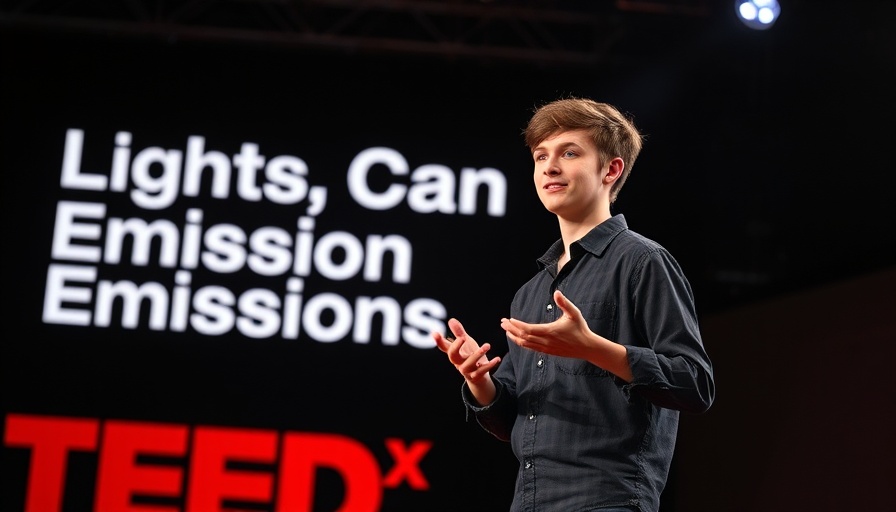
The Hidden Costs of Filmmaking
Filmmaking is often seen as a glamorous profession filled with creativity, innovation, and vision. Yet, beneath the surface of bright lights and elaborate sets lies a considerable environmental cost. As highlighted by Aidan Rhode in his TEDx talk "Lights, Camera, Emissions," the film and television industry is responsible for immense carbon emissions and waste. The New York City set where he worked emitted a staggering 33 metric tons of CO2 daily, with travel contributing over half of the emissions. In an industry that thrives on spectacle, the environmental toll often goes unnoticed, raising questions about responsibility and sustainability.
In 'Lights, Camera, Emissions,' Aidan Rhode dives into the pressing need for sustainability in the film industry, prompting us to analyze its environmental impact and envision actionable solutions.
Confronting the Contradictions in Production Practices
Similar to how Hollywood embodies contradiction, the on-set practices also portray a conflicted narrative. While Rhode described the presence of diesel generators alongside solar-powered trailers, this juxtaposition points to a broader challenge: overcoming the industry's ingrained habits and perceptions toward sustainability. The contradiction between the production of a blockbuster film and the principles of eco-friendliness raises essential discussions about what progress looks like in the 21st century.
Technology and Innovation as Levers for Change
The power of technology and innovation offers significant opportunities for the film industry to reimagine its approach to sustainability. Rhode emphasizes solutions like circular thinking, incorporating sustainability professionals, and using cutting-edge technologies such as 360° LED screens that significantly reduce waste and emissions. These innovations not only serve environmental purposes but can also lead to cost savings for productions. For example, by reusing props and costumes, productions can save numerous resources while contributing to the circular economy.
A Call for Proactive Change in Hollywood
Addressing sustainability involves more than just recognizing the problem—it requires a cultural shift within the industry. Rhode makes the case for integrating sustainability training into filmmaking curricula, ensuring future generations of filmmakers are equipped with the right tools to create eco-friendly films. Moreover, the urgency of climate change demands immediate action from all sectors, including the entertainment industry. Just as COVID-19 reshaped protocols overnight, a similar paradigm shift is needed to prioritize impactful environmental practices.
The Role of Audiences in Driving Sustainable Storytelling
Changing industry norms also involves audiences. As Rhode pointed out, research has shown that viewers want to see more climate-centered narratives. Stories that feature environmentally conscious characters not only resonate better with audiences but can also influence societal behaviors and norms. As filmmakers harness creativity to champion sustainability, they can transform viewer perceptions, making planet-friendly choices feel not just desirable but imperative.
Transparent Practices in a Evolving Industry
Rhode underscores the importance of transparency in sustainability initiatives. Rather than simply engaging in "greenwashing," where companies superficially appear eco-friendly, the industry must strive for accountability in its actions. By documenting and sharing their sustainability wins and challenges, entertainment entities can foster trust and inspire participation in the broader movement toward environmental stewardship.
Conclusion: Paving the Path for Sustainable Filmmaking
As we move forward, film and television have the unique opportunity to reshape cultural narratives surrounding sustainability. The call for change goes beyond Hollywood; it extends to every industry and individual. By adopting sustainable practices, we not only protect the planet but ourselves, ensuring that future generations enjoy the world we have today. As Rhode succinctly stated, "If we want a future worth filming, we need to act now." The time has come for all of us to play our part in this narrative shift.
 Add Row
Add Row  Add
Add 




Write A Comment